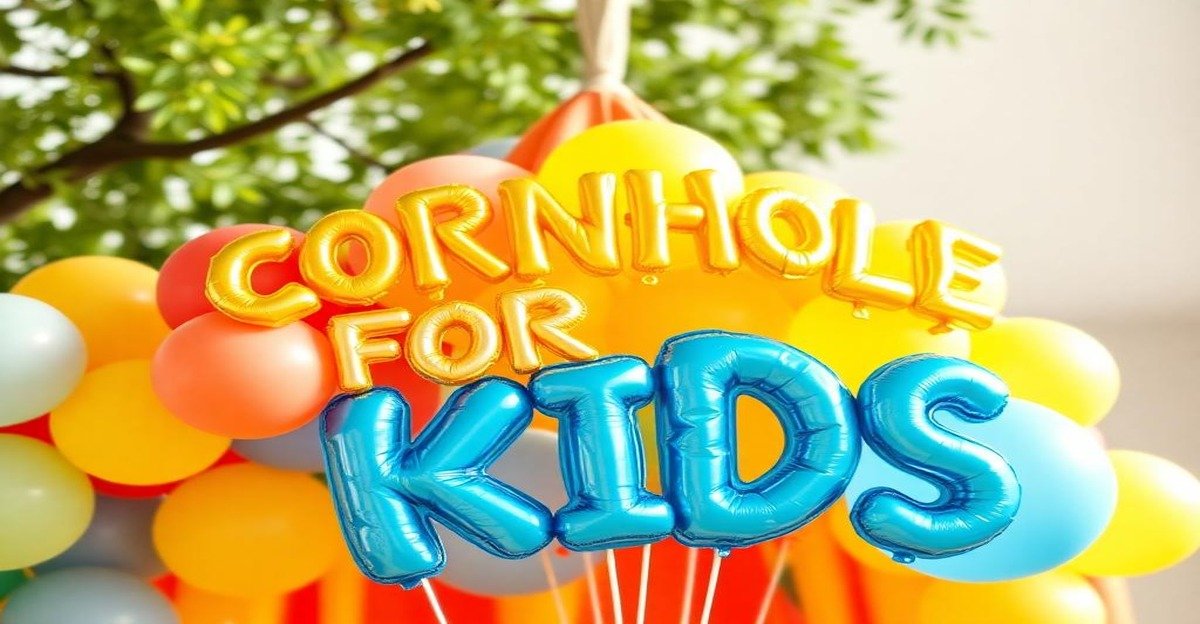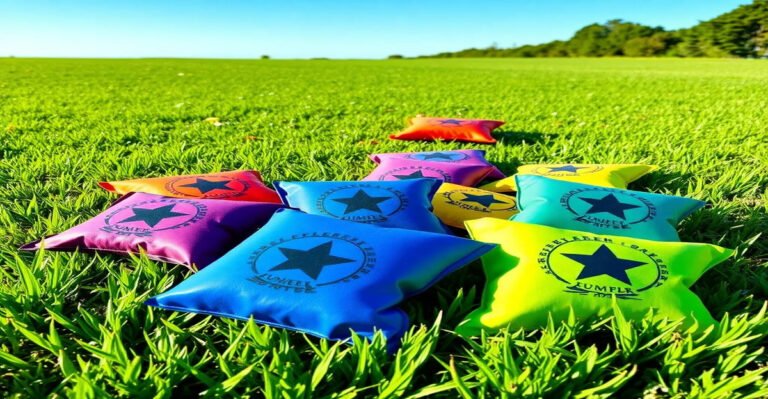Cornhole Game for Kids: Rules By The American Cornhole Association
Cornhole is a popular outdoor game that’s easy to learn and fun for all ages. Whether you’re introducing your kids to the game for the first time or looking for a backyard activity that promotes teamwork and coordination, this article covers everything you need to know about cornhole, including its rules, equipment, and tips for playing with younger players. With simple modifications, kids of all ages can join the fun and experience the joy of this timeless game.
The Basics of Cornhole: Boards, Bags, and Gameplay
Cornhole Boards
A standard cornhole board is a 24” x 48” rectangle made of durable wood or plastic. The board has a hole near the top center, which is the primary target for players.
Cornhole Bags
Cornhole bags are small bean bags, traditionally filled with dried corn kernels or resin pellets. Each team uses four bags of the same color to distinguish their throws.
The objective of the game is simple: toss the bag and land it on the board or through the hole to score points.
How to Set Up a Cornhole Board for Kids
When playing cornhole with kids, it’s important to adjust the game to their height and skill level.
- Shorter Distances: For young players, place the boards closer together, around 10-15 feet apart.
- Durable Materials: Use boards made of lightweight yet durable materials to prevent injury if kids handle them roughly.
- Flat Surface: Set up on a flat backyard or driveway to ensure stability.
Cornhole Game Rules Simplified for Kids
Cornhole rules can be simplified to make the game more approachable for kids:
- Scoring Basics:
- 1 point for landing a bag on the board.
- 3 points for getting a bag through the hole.
- Taking Turns: Players alternate throws until all bags are tossed. The team with the most points wins.
- Team Play: Teams of two encourage collaboration and teamwork.
How to Teach Kids to Play Cornhole
Underhand Tosses
Teach kids to toss bags underhand for better control and accuracy. Encourage them to aim for the hole or land the bag on the board.
Improving Aim
Use fun drills to help kids practice their aim. For instance, challenge them to land the bag in different parts of the board for varying points.
Customizing Cornhole for Younger Players
Make cornhole more enjoyable and safe for kids by customizing the equipment:
- Lighter Bean Bags: Replace standard cornhole bags with smaller, lighter bean bags for easier handling.
- Colorful Boards: Paint the boards with fun designs or themes to engage kids.
- Rounded Edges: Ensure boards have smooth, rounded edges to prevent injuries.
The Benefits of Playing Cornhole with Kids
Outdoor Fun and Teamwork
Cornhole is a great way to bring the family outdoors and promote teamwork. Kids learn to collaborate with their teammates and celebrate victories together.
Motor Skill Development
Throwing and aiming bean bags improve hand-eye coordination and fine motor skills, making cornhole a beneficial activity for young players.
Hosting a Cornhole Game Night for Families
Organize a fun cornhole night that includes everyone:
- Inclusive Rules: Allow younger players to play with modified rules or distances.
- Themed Challenges: Add variations like timed rounds or trick shots.
- Snacks and Prizes: Make the event special with treats and small rewards for participants.
American Cornhole Association and Official Rules
The American Cornhole Association (ACA) has established standard rules for professional gameplay, including:
- 27 feet between boards for regulation play.
- Scoring to exactly 21 points to determine the winner.
While official rules are great for tournaments, they can be adapted for backyard games with kids to ensure everyone has fun.
Summary: Key Takeaways for Kids Cornhole
- Cornhole is a fun and easy-to-learn outdoor game suitable for all ages.
- Simplify the game for kids by adjusting board distances and using lighter bags.
- Teach underhand tossing techniques to improve aim and coordination.
- Promote teamwork and motor skill development through regular play.
- Maintain equipment for safe and long-lasting use.
Introduce cornhole to your backyard, and enjoy endless hours of fun with your family and friends!






